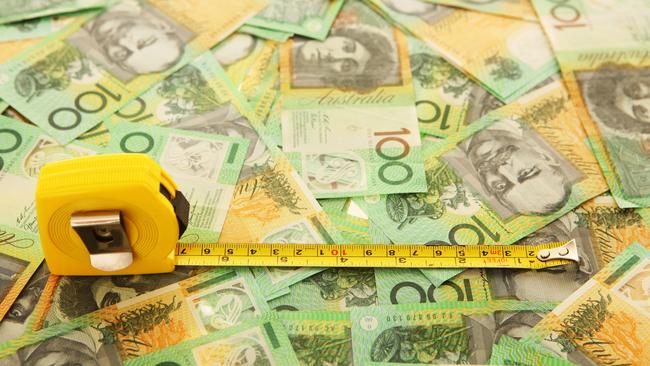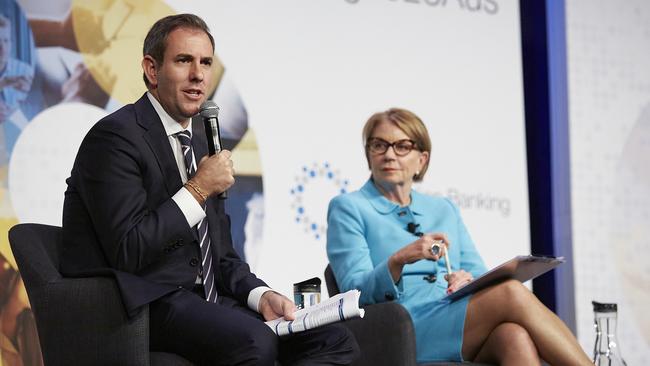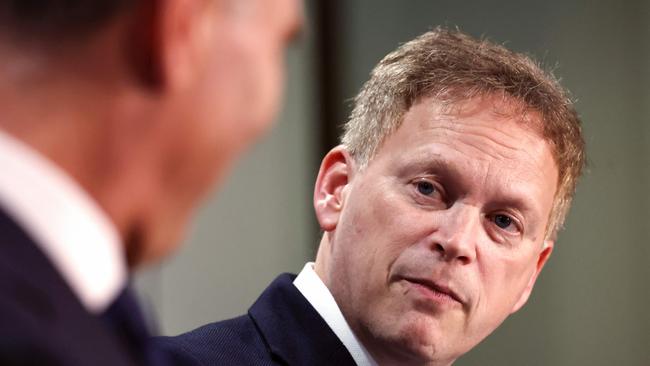Banks in secret study to dump use of cash; A one-way flight of fancy brag to the Brits

Some 71 per cent of people are worried about the prospect of a cashless society, according to research published in these pages on Friday. Unsurprisingly, the most anxious are the elderly; they’re among the few still clinging to hard currency.
Banks have made no secret of their eagerness to go cashless because, ironically, notes and coins have turned out to be a drag on their balance sheets. Imagine that? It’s now more trouble than it’s worth just keeping cash in circulation. We’ll have more to say on this in a minute.
But first we need to mention developments in a related matter. On Thursday we reported on the tortured negotiations between the Australian Banking Association and its frenemies at Linfox Armaguard, the cash-in-transit company that delivers money using armoured trucks and men with shotguns.
Armaguard’s claim is that it’s nearing insolvency because there’s so little cash to run around town any more, and this is confirmed in part by the Reserve Bank, which says (and we’re paraphrasing) that the only people still using cash are pensioners, tax dodgers and people with a taste for cocaine.
Linfox executive chair Peter Fox even agreed to crack the spine of Armaguard’s books if only to prove (because no one believed him) that his firm really was going broke; the only reason the firm’s still running at all is because his family keeps bailing out the business.
A deal is said to be imminent between Armaguard and the ABA, with the banks all but certain to pay additional sums for Armaguard’s services, thereby keeping it solvent. You can be sure they’re not happy about it.

From what we hear, the deal is regarded as a short-term bit of pain for ABA’s chief executive, Anna Bligh, and its chairman, Ross McEwan, both of whom led the negotiations.
The real story is that the ABA no longer wants to rely on the Fox family company to move any of the money at all. Margin Call hears it has engaged McKinsey & Co to examine the market and figure out if the banks can’t own and operate a similar cash-in-transit operation themselves, effectively cutting out Armaguard and its monopoly altogether.
All very top secret with a stack of nondisclosure agreements and the work very much still in train, we’re told.
But it’s also hard to believe that the freezing out of Armaguard is the main game for McKinsey. After all, the real villain is cash, obstructive as it’s become to the banks and their forward march into the digital revolution. Paywave technology gives them a few cents with every swipe; crumpled fivers and dog-eared lobsters don’t allow for any clipping of the ticket.
CBA’s Matt Comyn clearly loathes the bank’s need to maintain supplies of cash. As he told parliament in September: “We estimate that continuing to support distribution and availability of cash costs CBA approximately $400m each year.” And we all weep for Matt.
Come on, pal, that $400m has the weight of an eyelash next to the $10.2bn in after-tax profit CBA pulled during FY23.
His foul attitude also puts him at odds with Treasurer Jim Chalmers, who assured people in December that the government “remains committed to maintaining access to cash throughout Australia”.
All of which is to say we suspect McKinsey’s work isn’t confined to a scoping study of alternative trucking solutions for the ABA. Give us a break. It’s clearly a study into the various ways that cash can be phased out from the economy. That at least explains the absurd levels of secrecy … or maybe they just don’t want the government knowing yet?
The ABA declined to comment, and we put the matter to Chalmers’ office hoping for his two cents, but there was a shortage of cash there, too.
Flight of fancy
Call him Maverick? UK Defence Secretary Grant Shapps found himself on a one-way flight at supersonic speed from Canberra to Adelaide on Thursday afternoon. Not content to fly him commercial, Defence officials put the visiting dignitary – here for AUKMIN meetings – in the tandem seat of an F/A-18F Super Hornet, if only to show off a bit.
“The flight was part of a demonstration of an important element of Australia’s defence capability, to one of our key defence partners,” officials said in a statement.
Turns out the Brits don’t have Super Hornets so this was intended to be a bit of a flex, or, in the stodgy words of the same officials, “to demonstrate one component of Australia’s air combat capability”. Yes, very good.

For the geeks, the Super Hornet is what Tom Cruise’s character, Captain Pete Mitchell, was flying when he launched the famous “Dagger Attack” scene in the Top Gun sequel. An immediate 100 push-ups for anyone who doesn’t know what we’re talking about.
Anyway, all well and good to have Super Hornets but we’re still waiting for some killer drones to be acquired, according to former chief of army Peter Leahy and former head of land capability Ian Langford. Without them, apparently we’re screwed if there’s an actual war.
Oh, yes, and Shapps is still in Adelaide. The joy ride was only a one-way flight.
Teal does a ‘Neal’
We’re surprised to hear of Zoe Daniel blowing up at a group of Comcar drivers on arrival at Melbourne’s Tullamarine Airport on Thursday night. Nerves can fray at the end of a sitting week, but didn’t the teals promise to do politics differently? Judging by the display, Daniel was acting no better than Belinda Neal, if anyone remembers her (“Don’t you know who I am!”)
Never a good idea to pick on the Comcar drivers, either. Oh boy, do they talk. Seems like the Goldstein MP was unable to find her driver at the designated spot outside the arrivals hall. This while colleagues linked up seamlessly with their chauffeurs.
The problem, we’re told, is that Daniel had been designated a hire car instead of a Comcar on account of resourcing, and the vehicle was idling at the other end of the terminal. Her office put the matter down to confusion, a misunderstanding, but you can be sure the MP was left in a huff about the ordeal – enough for people to notice.
Is there too much on Daniels’ mind at the moment?
We note the Liberal Party will hold preselections on Sunday to determine who will stand in Goldstein, the seat having been snaffled in the teal wave of 2022. Former assistant minister Tim Wilson, who lost the seat, is having a crack. He’s facing lawyer Stephanie Hunt, a former adviser to Julie Bishop and Marise Payne, and IPA research fellow Colleen Harkin.
Curry and (last) drinks
Hotel industry veteran David Curry called last drinks on a decades-long career this week, ending his run as Endeavour’s beloved government relations chief. Curry’s on the board of the Australian Hotels Association but has mostly made a crust with Australian Leisure and Hospitality Group – before it merged with Endeavour in 2020, both companies having been spun off by Woolworths.
But these were mere second acts in Curry’s world. Who knew that he was responsible for organising Crowded House’s first Australian concert, in 1987, on the roof of Myer in Melbourne (a performance now conserved in the National Film and Sound Archive)?
There was also a tilt at the seat of Wills, in Victoria, for the Liberal Party – brave, too, given the seat’s remained a Labor stronghold since basically forever (except for two years in the early 1990s when it was briefly held by an independent).
Said to be irreplaceable, Curry’s departure coincides with the imminent start of Rob Malinauskas, who’ll be joining Endeavour from Santos in a GM role for policy and public affairs. He’s the younger brother of South Australian Premier Peter Malinauskas.






